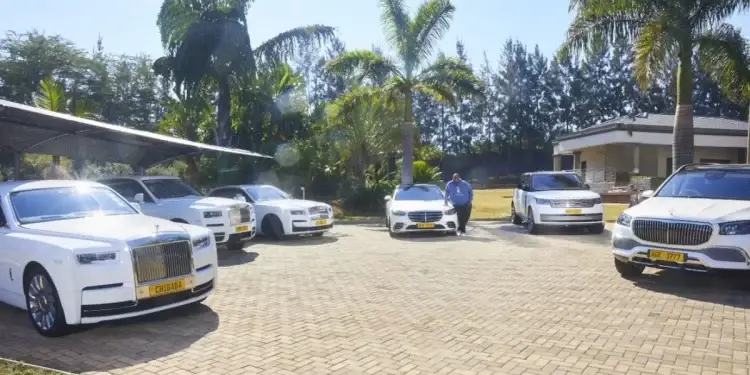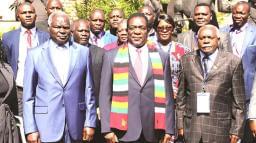Zimbabweans online are buzzing as the Government introduced a new tax on luxury and high-end vehicles.
The new duty on luxury cars comes amid another bunch of new taxes that Finance Minister Prof Mthuli Ncube announced in the 2024 National Budget last month.
From 1st January 2024, vehicle registration fees will shoot from US$80 to $100 for vehicles with 1500cc engine capacity. For those with an engine capacity above 1500cc, Prof Mthuli proposed a US$500 registration fee.
Passport fees will also be reviewed upwards in 2024 from US$120 to US$200 in 2024 if the proposed budget is approved. There will also be a new tax on sugar and a 1% property tax on all houses valued at US$100k and above.
The government announced a new tax on luxury vehicles in a new development.
Minister of Finance, Economic Development and Investment Promotion Prof Mthuli Ncube said in a notice:
“This notice may be cited as the Customs and Excise (Surchage) Notice, 2023. This notice shall be effective from 1st January 2024. The surcharge shall not apply to motor vehicles of a commercial nature and importations by the Government.”
In the notice schedule, vehicles valued from US$100,000 to US$300,000 will pay a 30% tax. Vehicles worth US$300,001 to US$700,00 will pay a 40% duty, while those costing over US$700,000 will pay 50%.
Zimbabweans on social media expressed mixed sentiments about the new tax on luxury vehicles.
Shepherd:
“Failed to go after Gambling but opting to target vehicles 😂 seems the govt wants to encourage gambling but discourage driving 🤦🏽♂️”
Gaza:
“@ZANUPF_Official vehicles don’t pay toll fees. What is going to change?”
Uncle P:
“@wicknellchivayo vanongopinda nadzo dzavo hamuvabhadharise.”
Jerrycan:
“Asi yaitove pa 0% here? Dzedu varombo dzinorohwa ma 96% wani?”
Norman:
“How many cars above 300k are imported, even if they are 20 or 50, the revenue impact on the fiscus is very insignificant.”
Thorny:
“Kkk, you forgot people can just pay bribes. People who have these types of cars are politically connected, so they won’t pay these duties. The issues of our country aren’t resolved by charging more but by realising why we aren’t getting enough revenue and fixing those areas.”
Source iHarare











